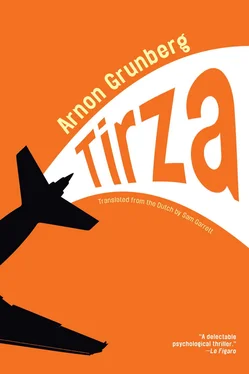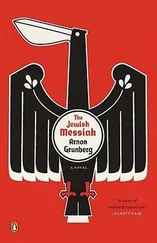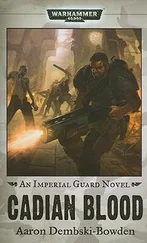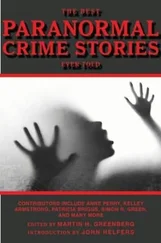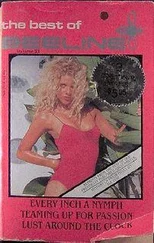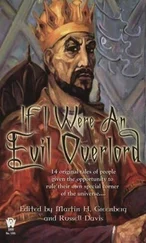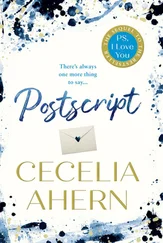In addition to the keyboard was a wooden kameeltje that Ibi before him had brought from Egypt. He went to the toilet, tore what toilet paper and wrapped the kameeltje, fearing that on the bike in his bag would damage.
There was still a drawing of Tirza on the wall, a self-portrait. Also that he concentrated. Frightened by both the wall to damage if the drawing.
Then it was his chamber is empty. He opened a few desk trays to see if he had forgotten nothing but the rest was not of him. He no longer treuzelde. His working life was over, it was fast and relatively undetected, that too. No major authors discovered that summed it together.
In the hallway he came a cleaner, a worldview against. Ship's steward had always suspected that the clean-maker for the Taliban had worked but he had never expressed that suspicion. It would now for always unspoken continue. In passing I mumbled he polite: 'good evening', he had any doubts are still not that the Afghan, just like those counterparts of him, the Trojan horse was that they had won.
When his bike broke away, conceived his leather briefcase still was a manuscript of an author from Azerbaijan that it in English translation for the assessment was sent. He went out of his bag and wanted to go back to the on his desk for the successor, but he stayed with his bike with the manuscript in his hands and did it ultimately back in his briefcase. Nobody would miss it. Everything would be otherwise.
He was a month for Tirza's final examination a free man. Free of obligations, free from the Clerk existence, free of very urgent financial emergency — because he was simply paid by — free of work which he had hate but which he still had to conduct. Production meetings for example. The freedom that it was suddenly given a desert seemed.
Home clogged he the wooden camel, the photos and the drawing in his tray with briefs. Then he worked on two lamskarbonades. And while he was busy with the carbonade, he said to himself: 'it is a disgrace. Unnecessary Resistance is a disgrace. Maybe I am always have been superfluous.' The pronouncement of these thoughts in a weird way momentarily. As if he had not necessary had put the foot cross by that so clearly to appoint. He took the pepper mill and proceeded.
'What was your day?' asked Tirza to table when she board had eaten empty.
'Well,' he said, "Press, we are working with the Autumn offer. It is a nice offer. And, how did your school research?'
The next day he rode as every morning at a desk or nine with his briefcase to the steering direction town. At the height of the Leidseplein he realized that this is perhaps not such a good idea. What he was still in the town to search? He could sit in a cafe, but then he ran the risk colleagues who might wonder what he did in the middle of the day, in a café. He stepped, thought just after and turned when. He started in a southern direction to cycling.
Arrived at Zuid/WTC station he was tired. He did his bike lock and ran a time with his briefcase under his arm by the station. To this him began to get bored. How long can you by a relatively small station walking? Most of the magazines in the newspaper kiosk he had already leafed through. He saw that the only twenty past ten was, freedom took a long time. Without thinking he bought a ticket to Schiphol.
Since he walked by the Departures Hall, first he did the first, when the second, and then by the arrivals hall. He got hungry and bought a sandwich with Brie, that he just sit on a bench in the departures hall opat. From his briefcase he purportedly collected the manuscript of the author in Azerbaijan. He began to read. Routinely he made here and there with a pencil notes in the margin.
Then he bought an apple and remained an hour and a half in the arrivals hall to passengers to watch. Once it he put his right hand up and waved. Like someone who is on the other side of the glass of the baggage band, ship's steward had recognized and passionate to him had waved. A family member, a good colleague, a childhood friend who for thirty years he had not seen.
He did it only for not too much in the holes to walk. Who the whole day hanging around Schiphol Airport, is located in a precarious situation. In these times. Everyone is suspected. That have common to all travellers, the suspicion.
At half past five he decided that his mind could go home. The day was slow to start but he was ultimately detour. He took the train to Amsterdam Zuid/WTC and peddled from there to his home in the Van Eeghenstraat, wherever he washed and the evening food, chicken and fried potatoes, prepared.
When they were done with food, he said to Tirza: 'When I hear you should have, you should say so.'
'No, PAP. How was it at your work?'
'The went well,' he said. 'We are being flooded with manuscripts.'
He travelled from that day five mornings a week to Schiphol.
The literary publisher did better, but the airport was also not disappoint.
Ship's steward developed a routine. In the morning he did the two departure halls, than lunch break, a sandwich brie and an apple, he drank water on the gentlemen toilet. During the lunch break he read the manuscript of the author in Azerbaijan. And in the afternoon he did the arrivals hall.
He did the halls, so it felt, he checked them, he supervised them.
Not too much in the holes to walk now and then he continued for a monitor, sighed loud, and mumbled: 'Damn, still delayed.'
Also he bought sometimes a rose, with which he than for the glass of the arrivals hall went up to return an imaginary passenger to say goodbye. But this he did only if he had the idea that his presence too very began to fall. Sometimes he left the rose in the rear axle, sometimes he took him to house, cut it short and put him in a glass in the kitchen.
He was a kind of private keeper. Minutes long he could for the monitors in the departures hall and there were days when he notes made in its agenda of the delayed flights. At the end of the week he leaves the agenda by and saw for example that on 2 June the KLM flight to Warsaw was delayed.
After a few weeks he had the feeling that he has all his whole life had spent at Schiphol Airport. Publisher are decades were pushed into the background, had received surreal about. The keeping of delays at Amsterdam Airport Schiphol, view of the passengers and their luggage, differed not much of the work in the garden or in the publication of books.
Two years ago when they with the entire publishing a boat trip on the River Linge had allowed to come closer together, was a colleague next to him, and had asked him: 'Jörgen, which living your name?'
They both had a few seconds to the Linge looked ship's steward in comparison with memories from his youth suddenly found against falls.
'I live for my work,' said ship's steward after a long silence, 'for the publishing and for the children.' for his wife he could not justify more life, who had taken the legs.
But now he had to admit that this is not a particularly apt. He did not work more and yet there was hardly anything in his life has changed. Instead of five times per week to the Herengracht cycling he went five times per week to the airport. He saw what less people, no, that were not, he saw more people, but they saw him not. Or they had seen past him was of course the question. He lived not more for his work and yet there was no significant changes in its existence. He lived for the children, he lived for Tirza. That he was to say, on the Linge, in that boat.
Each trash on Schiphol knew he has, at least at its side of the customs, every newsstand, each check-in desk was familiar to him, each change was on and was a breach of its rhythms. The others were hell he had never believed. He had found it strange that it is precisely that quotation from Sartre had become so famous. There were better and more interesting quotes from Sartre, less cynical, less black, less lonely.
Читать дальше
